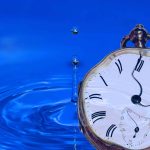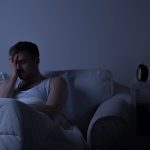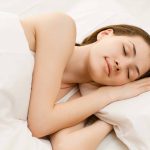Summary: Beacon Biosignals and Takeda have partnered to progress snooze dysfunction study through house-centered EEG checking. Using Beacon’s Fda-cleared Dreem 3S EEG headband and AI analytics, the collaboration aims to obtain higher-excellent, true-time rest facts to guidance medical trials for situations like narcolepsy. This initiative will enable for much more individualized cure techniques and improve the diagnostic procedure by enabling sufferers to participate in scientific tests from property, decreasing the need to have for lab visits and dashing up knowledge selection and investigation.
Essential Takeaways:
- Beacon Biosignals and Takeda are collaborating to use at-property EEG monitoring for snooze problem study, leveraging Beacon’s Fda-cleared Dreem 3S EEG headband and AI-driven analytics.
- The partnership focuses on accumulating longitudinal, laboratory-high quality sleep details from patients’ households to support clinical trials, specially targeting circumstances like narcolepsy.
- This tactic is built to strengthen the diagnostic journey for individuals by decreasing the require to vacation to slumber labs and enabling more rapidly, a lot more correct snooze tests and facts evaluation.
Beacon Biosignals, a maker of at-house EEG and computational neurodiagnostics, announced a collaboration with biopharmaceutical business Takeda to perform at-household rest checking to assist medical trials for rest problems leveraging Beacon’s neurophysiology system, such as the US Food stuff and Drug Administration (Food and drug administration)-cleared Dreem 3S EEG headband, synthetic intelligence (AI)-driven analytics, and EEG database.
Being familiar with the value of snooze-associated disturbances is vital to improving the diagnostic journey of rest diseases this sort of as narcolepsy and enabling additional personalized therapy choices, in accordance to a launch from Beacon. Quantitative sleep facts have historically been tough to gather and evaluate at the velocity and scale important to assist clinical development.
This collaboration allows Takeda to obtain laboratory-quality sleep info from a patient’s household, longitudinally, and at-scale employing Beacon’s state-of-the-art wearable sleep EEG hardware, AI-driven analytics, and medical functions solutions.
“Takeda is committed to producing daily life-reworking therapies for parts of best unmet want, which includes narcolepsy and other slumber-wake disorders. In partnering with Beacon, we will now have obtain to genuine-time, longitudinal sleep facts that greater reflects the day-to-day burden of dwelling with these issues,” claims Elena Koundourakis, head of the orexin franchise advancement and neuroscience portfolio system at Takeda. “The Beacon platform will be utilized to notify our clinical trial patterns including defining quantitative, digital endpoints based on aim actions of slumber styles, which could help additional customized treatment techniques and strengthen the diagnostic journey for individuals.”
Dwelling-Based EEG Technological innovation
The Beacon Platform facilitates detailed insights into sleep and wake brain function. The Dreem 3S headband, which not too long ago attained Fda 510(k) medical device clearance, enables longitudinal sleep information selection from sufferers in the consolation of their dwelling and via self-application with no the need to have for specialised technologists.
Accumulating these info remotely alleviates the patient stress of travelling to a slumber lab and might make improvements to the diagnostic journey by enabling speedier slumber tests. On top of that, Beacon’s superior machine mastering algorithms, which are also Food and drug administration 510(k)-cleared, fast evaluate EEG knowledge to seize validated medical trial endpoints and score sleep levels with equivalent general performance to human gurus.
Driving Sleep Diagnostics and Therapeutic Development
In this collaboration with Takeda, Beacon’s AI-run technologies set up a basis for improved diagnostics and guidance the enhancement of interventions for problems with too much daytime sleepiness or disturbed nighttime sleep, according to a release from the enterprise.
“Beacon is thrilled to perform with Takeda to guidance the improvement of therapies that can boost the life of sufferers. Rest is elementary to brain wellbeing and alongside one another we’re location a new typical for rigorously measuring slumber in clinical trials,” claims Jacob Donoghue, MD, PhD, CEO of Beacon, in a release. “By bettering the affected individual working experience and operationalizing at-house rest assessments at scale, we are generating unprecedented, large-high-quality details on brain operate all through drug growth. This paves the way for authentic-earth use in scientific diagnostics across neurological and psychiatric indications.”
Image caption: Beacon’s Dreem 3S headband, an Fda 510(k) cleared product that enables longitudinal slumber facts assortment from clients by way of self-software at property.
Image credit history: Beacon Biosignals




Leave a Reply